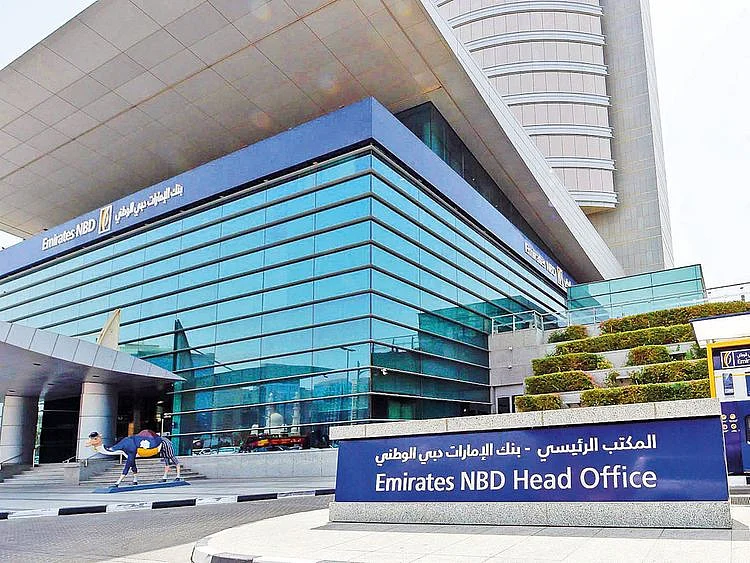Higher foreign ownership limits to boost UAE investment flows
Increasing foreign ownership would enable UAE banks to broaden investor base

Also In This Package
Dubai: A number of listed companies in the UAE, particularly banks, have announced their intention to increase foreign ownership limits (FOL), attracting higher portfolio investments into the UAE.
Analysts expect the increased foreign investment into domestic banks to offer manifold benefits for the institutions concerned, the stock market and the economy as a whole.
“Increasing foreign ownership levels would enable banks to broaden their investor base and attract capital at a time when economic uncertainty looms large. It also bodes well for the privatisation programme and shall sustain capital inflows into UAE,” said M.R. Raghu, head of research at Kuwait Financial Centre (Markaz).
A few leading banks, such as First Abu Dhabi Bank and Emirates NBD, have recently announced their intention to increase foreign investment limits. While Emirates NBD has announced its intention to increase foreign ownership limit to 40 per cent in the future, FAB announced in July this year its plans to drop the foreign ownership limit altogether, subject to regulatory approvals.
Emirates NBD announced earlier this month it had implemented an increase in its FOL from 5 per cent to 20 per cent.
Manifold benefits
“Increased foreign investment into domestic banks offers manifold benefits for the institutions concerned. Foreign investors, especially those with management expertise can help improve the risk management practices and increase transparency, thereby leading to better corporate governance standards. They also bring in specific domain knowledge which helps in improving the skills of local management,” said Vijay Valecha, chief investment officer, Century Financial.
The presence of a foreign strategic partner like a bank will help in increasing the product diversity and deepening the financial market.
“Higher FOLs will be positive for the banking sector, particularly capital structure, if it follows this up with primary raising of funding instead of just portfolio investments,” said Shailesh Dash, entrepreneur and financier. “Portfolio investment flow will certainly see a pickup as it’s the most actively traded segment apart from real estate in UAE.”
As the FOL liberalisation is starting to gather steam, analysts expect a pickup in portfolio investment flows into the country.
“The FAB precedent to remove FOL could result in about $3.7 billion passive inflows. This is driven by a higher weight for current constituents ($2.4 billion, mainly FAB, Etisalat and DIB) as well as the potential for the inclusion of new names ($1.1 billion) like ENBD, DU, and Aramex, though their inclusion remains distant as liquidity needs to pick up,” Arqaam Capital said in a recent note.
Portfolio inflows
Century Financial’s Valecha expects the potential for more foreign investment from the non-GCC region to be large in UAE, with existing quotas largely unfilled.
For example, in ADCB, the foreign ownership is only 13.37 per cent, compared with the FOL of 40 per cent. FAB has 11.30 per cent against the FOL of 40 per cent, while Mashreqbank stands at 2.99 per cent against an FOL of 49 per cent.
Emirates NBD is at 5.61 per cent against the recently increased FOL of 20 per cent.
“In fact, on an average 88.55 per cent of the FOL is unused in DFM-listed banks, while for ADX-listed banks about 83.54 per cent of the limit is unused. The UAE, being a stable nation, has tremendous potential for attracting more foreign investment and efforts like increasing the weightage or inclusion in more global benchmarks need to be undertaken,” Valecha said.
Increased foreign investment is seen as beneficial for the UAE, in terms of economic development, employment growth, improved productivity, knowledge transfer and facilitation of international trade.
Higher FOL is expected boost market liquidity and overall credibility of the market.
“Foreign institutional investors being invested in the stock lends credibility and could be construed as a sign of approval; domestic retail investors might jump the bandwagon, thereby increasing the stock liquidity,” said Raghu.
As foreign investors would demand greater transparency of operations, and additional disclosures pertaining to strategy and direction, analysts see higher FOL to improve the corporate governance.
“Having diverse set of investors could enhance the due diligence process before Mergers & Acquisitions [M & As] and prove to be an impediment for value-destructive M & As,” Raghu said.
Sign up for the Daily Briefing
Get the latest news and updates straight to your inbox
Network Links
GN StoreDownload our app
© Al Nisr Publishing LLC 2026. All rights reserved.